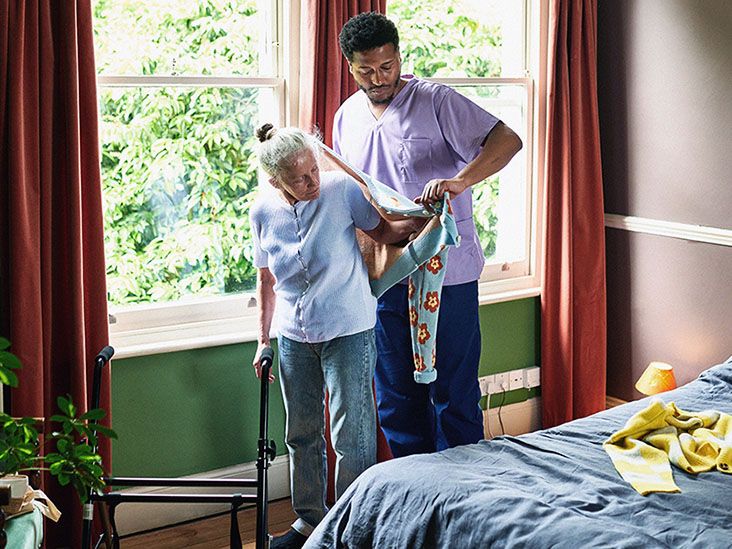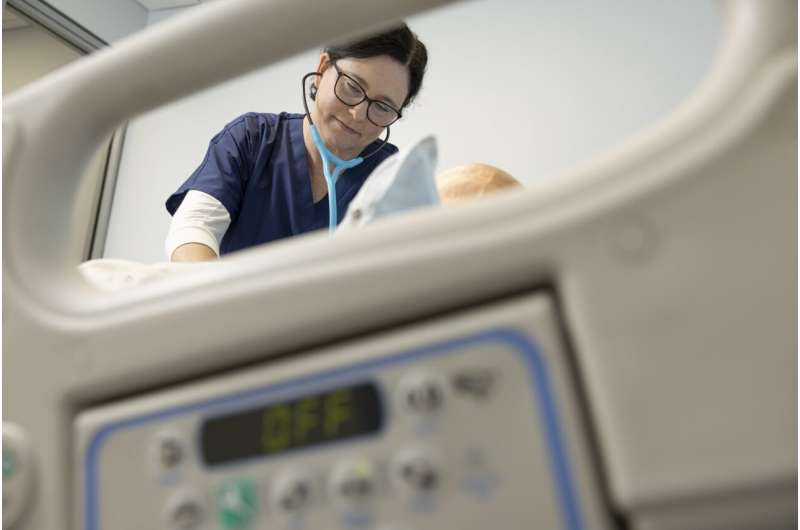Hey there! Let me ask you something have you ever stood in front of a medicine cabinet, staring at a rainbow of pill bottles, feeling like you're trying to solve a puzzle with missing pieces? If you're nodding your head, you're definitely not alone. Managing medications as we age can feel like juggling flaming torches while riding a unicycle complicated, stressful, and a little scary.
I get it because I've been there too, helping my own grandmother sort through her medications. One day, I found her staring at her pill organizer like it was written in ancient hieroglyphics. That's when I realized we needed a better system. Today, I want to share some practical strategies that have helped countless families navigate the sometimes overwhelming world of medication management for older adults.
Why This Gets Tricky
Let's be honest taking multiple medications isn't like following a simple recipe. When you're managing medications elderly family members or yourself, you're dealing with a complex web of prescriptions, over-the-counter remedies, and sometimes herbal supplements that all interact in different ways.
The term "polypharmacy in older adults" might sound like medical jargon, but it's really just a fancy way of saying "taking a lot of different medications." And here's the thing while each medication might be perfectly safe on its own, when they start mingling together, unexpected things can happen. I remember speaking with a pharmacist who compared it to mixing different colors of paint sometimes you get something beautiful, but other times, you end up with muddy brown.
Danger Zones to Watch
Picture this: Margaret, a vibrant 78-year-old who loves gardening, started taking a new pain medication for her arthritis. What she didn't realize was that it was interacting with her blood pressure medication, causing her to feel dizzy and unsteady. One afternoon, while reaching for her favorite roses, she took a tumble that could have been much worse.
This kind of situation highlights why senior medication safety isn't just about remembering to take pills it's about understanding how they work together. When our bodies change with age, medications can behave differently too. What worked perfectly five years ago might need adjustment now.
And when cognitive challenges enter the picture, things get even more complex. If you're supporting someone with medication adherence dementia, you know it's not about being stubborn or forgetful on purpose. Their brain is literally having trouble keeping track of routines that once felt automatic.
As nurse educator Dr. Lisa Antle wisely notes, "Memory loss doesn't mean loss of autonomy. With the right support, it's totally possible to maintain a safe routine." That's a perspective that really stuck with me it's not about taking control away, but about adding the right kind of support.
Building Your Safety Net
Here's where we roll up our sleeves and get practical. The first step that made the biggest difference for my family was creating what I call our "medication bible" a simple, easy-to-read list of everything being taken.
| Drug Name | Dosage | Reason Taken | Time Taken | Notes |
|---|---|---|---|---|
| Metformin | 500mg | Diabetes | With breakfast | Can cause stomach upset |
| Lisinopril | 10mg | Blood pressure | Morning | Don't skip doses |
This might seem basic, but trust me, having this list updated and bringing it to every doctor's appointment has saved us from potential problems more times than I can count. It's like having a translator when you're in a foreign country suddenly, communication becomes so much clearer.
Hospital visits are another critical time for staying alert. I learned this the hard way when my uncle came home with a new medication regimen that nearly caused more problems than the original condition. The key is medication reconciliation basically, treating every hospital discharge like a fresh start that needs careful checking.
Your Post-Hospital Checklist
Before leaving the hospital, make sure you:
- Confirm all medications and dosages
- Get clear written instructions about what to take and when
- Understand which of your regular medications to restart
- Schedule a follow-up appointment with your regular doctor
And here's something that might surprise you sometimes the most important signs that something's wrong don't come from physical symptoms. When we're talking about medication management older adults, especially those dealing with dementia, behavioral changes can be early warning signals. Has mom suddenly become more agitated? Is dad more confused than usual? These could be medication side effects trying to get your attention.
That's why I'm such a big believer in the AGS Beers Criteria it's like having a red-flag system for medications that might not be the best fit for older bodies. You can check out HealthInAging.org's Beers Criteria resource to see which medications might need extra caution.
Smart Tools for Daily Life
Let's talk about the tools that can make daily life so much easier. I know what you're thinking "Another gadget to figure out?" But hear me out. When we're managing medications elderly loved ones, sometimes the simplest tools make the biggest difference.
First, let's clear up a common misconception just because something is over-the-counter doesn't mean it's automatically safe to mix with prescription medications. I had a friend who was taking blood thinners and thought it was fine to add an OTC pain reliever. Spoiler alert: it wasn't fine. A quick chat with her pharmacist could have prevented a scary situation.
Now, about those pill organizers and reminder systems they can be fantastic, but only if they're used correctly. I've seen beautifully organized pill boxes that never get refilled, or digital reminders that get ignored because they're too complicated to set up. The key is finding what works for your specific situation.
| Tool | Pros | Cons |
|---|---|---|
| Weekly Pill Box | Visual & simple | Easy to forget to refill |
| Digital Reminders | Customizable alerts | May need tech support |
| Blister Packs | Pre-sorted by day | Not all meds are available |
For those dealing with physical challenges like poor vision or weak grip, there are some real game-changers out there. Easy-open caps, large-print labels, and liquid versions of medications can make a world of difference. Most pharmacists are incredibly helpful when you ask them to modify packaging they've seen every challenge imaginable and usually have creative solutions.
The Power of Partnership
I want to emphasize something that's been crucial in my own journey your pharmacist is probably one of the most underutilized resources in medication management. They spend more time with patients than doctors do, and they have a wealth of knowledge about how medications interact.
Most pharmacies offer free annual medication reviews. Think of it as a check-up for your medications are you still taking everything you need? Have any prescriptions become redundant? Are there potential interactions you should know about?
Here are some questions that have opened really helpful conversations for me:
- "Am I taking too many medications?"
- "Can I take this over-the-counter medicine with my prescriptions?"
- "Are there easier-to-use versions of this pill?"
When you're dealing with someone who has dementia and medication adherence challenges, the approach needs to be gentle and respectful. It's not about taking control away it's about adding supportive structures. Visual cues, routine triggers (like taking medication with a specific meal), and simple packaging can all help maintain dignity while ensuring safety.
When to Ask for Help
Sometimes, despite our best efforts, we need to recognize when extra support is needed. Here are some warning signs that it might be time to bring in additional help:
- Missed doses becoming a pattern
- Medicine hoarding or hiding pills
- More frequent hospital visits
- Confusion about what medications are for
- Accidents or falls that might be medication-related
The good news is that there are community resources and programs available. Medicare and Medicaid assistance programs, home health services, and visiting nurse programs can provide the extra support needed. It's not about giving up it's about getting the right kind of help.
I remember talking to a caregiver whose mother had been struggling with her medication routine. They felt like they were failing, but when they reached out to a home health service, it transformed their situation. The visiting nurse didn't take over she taught the family new strategies and provided backup support when needed.
Moving Forward with Confidence
Managing medications doesn't have to feel like a constant battle. When we approach it with patience, the right tools, and good communication with healthcare providers, it becomes manageable. The goal isn't perfection it's safety and quality of life.
What I've learned through my own experience and talking with so many families is that small, consistent actions create big results. Creating that medication list and keeping it updated. Having those conversations with pharmacists. Recognizing when you need extra help. These aren't just tasks they're acts of care and love.
If you're feeling overwhelmed right now, I want you to take a deep breath. You're not alone in this, and you don't have to figure it all out at once. Start small maybe today, just focus on creating that medication list. Tomorrow, you might call your pharmacist to ask one question. These small steps add up to real progress.
Remember, medication management for older adults is a journey, not a destination. Some days will be easier than others, and that's completely normal. The important thing is that you're taking action, you're learning, and you're advocating for safety and well-being.
You've got this, and more importantly, you don't have to do it alone.
FAQs
Why is medication management more challenging for older adults?
As people age, changes in metabolism and organ function can alter how medications work. Additionally, taking multiple prescriptions increases the risk of harmful interactions, making medication management more complex for older adults.
What is polypharmacy, and why does it matter?
Polypharmacy refers to the use of multiple medications by a patient, often more than clinically necessary. For older adults, this can lead to increased side effects, drug interactions, and complications, affecting overall health and safety.
How can caregivers help with medication adherence in dementia patients?
Caregivers can support medication adherence by using visual cues, simple packaging, routine-based reminders, and creating a calm environment. Maintaining respect for the individual’s autonomy while ensuring safety is key.
What tools are most effective for medication management in seniors?
Effective tools include daily pill organizers, digital reminders, blister packs, and large-print labels. Working with a pharmacist to simplify regimens and modify packaging also improves daily medication safety and consistency.
When should families consider professional help for medication management?
Families should seek help when there are repeated missed doses, confusion about medications, frequent falls, or hospital visits. Professional services like home health nurses or medication review programs can offer essential support.
Disclaimer: This article is for informational purposes only and does not constitute medical advice. Always consult with a healthcare professional before starting any new treatment regimen.
Related Coverage
When a loved one passes, Medicare after death stops immediately, but prior claims can still be filed. Learn how bills are handled....
Learn how to enroll in Medicare using SelectQuote’s services and make informed decisions about your healthcare coverage....
Aging in place lets you stay in your home safely with the right planning, support, and simple modifications. Start your journey today....
Discover how anti-inflammatory essential oils like frankincense, chamomile, lavender and others can promote swelling and pain relief for conditions like arthritis, gut issues, sore throats....
Discover how anti-inflammatory essential oils like frankincense, chamomile, lavender and others can promote swelling and pain relief for conditions like arthritis, gut issues, sore throats....
Get clear definitions of common Medicare terms to help you understand your health coverage and make smart decisions....
Learn if Medigap Plan N is right for you. Compare benefits, costs, and coverage of Plan N vs. other Medigap options....
Learn how medical alert watches work and compare top styles like smartwatches vs jewelry alerts. Review key features, leading brands, costs and getting started....
Learn how Medicare benefit periods work, including coverage details, deductibles, and skilled nursing care rules....
Avoidable nursing home hospitalizations harm frail elders, disrupt care, and strain families. These preventable ER trips can be reduced with better on-site support and clear care plans....








